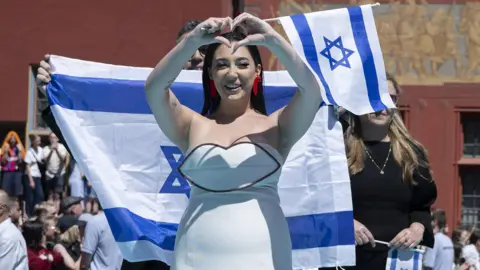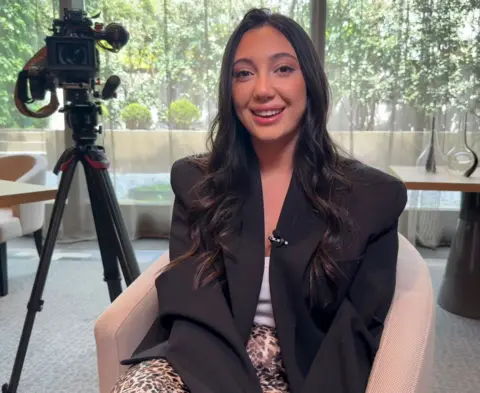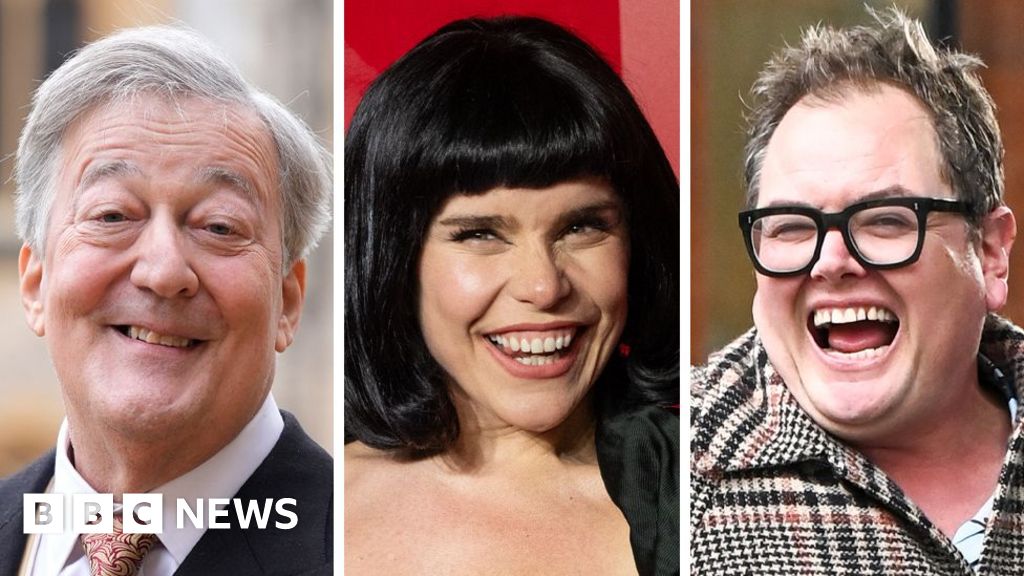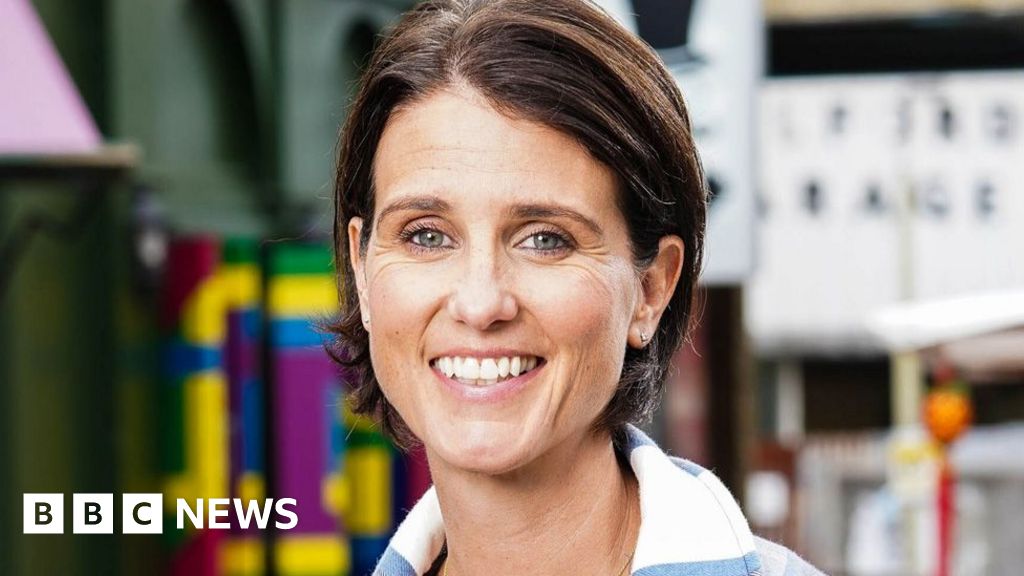ARTICLE AD BOX
Lucy Manning
Special correspondent
Reporting fromBasel, Switzerland

 EPA
EPA
Yuval Raphael never dreamt she'd be at Eurovision.
The last major music event she attended was the Nova festival, in Israel, where she was nearly killed. On 7 October 2023, the singer fled the festival when Hamas gunmen started shooting.
Now she's preparing to go on stage at the world's largest music event.
"It's something I deal with every day," she told the BBC. "It feels like a personal win, just to be having this experience and representing my country and doing it with such pride."
On that day - one and a half years ago - Ms Raphael was attending her first outdoor rave. As rockets were fired from Gaza into Israel, and Hamas gunmen started shooting at revellers, she attempted to flee the carnage.
She and her friends took refuge in a concrete bomb shelter at the side of a road. Around 50 people were crammed in, lying on top of each other.
But there was no escape as the gunmen shot repeatedly into the mass of bodies in the shelter and then threw in hand grenades.
Ms Raphael managed to call her father in tears, as heard in a recording played in an Israeli documentary. "Dad, lots of people are dead. Send the police here. Please dad, send the police, it's urgent.. they're crushing me," she said.
"Be quiet," he replied. "Yuvali my daughter. Yuvali, breathe deep. Hide. Play dead."
"Bye," she said, thinking that was the end.
Ms Raphael was one of only 11 people in the shelter to survive. She hid under a pile of dead bodies for eight hours until they were rescued.
That day, around 1,200 people were killed by gunmen led by Hamas, and 251 were taken hostage.
We danced with joy then hid among the dead – Nova survivors recall Hamas massacre
Ms Raphael's professional singing career started after the attack. "I wished for myself to be happy and to really understand the gift that I had been given, and that's to live," she says. "To have more experiences, to be happy and to live fully."
On Thursday, the 24-year-old will sing her song, New Day Will Rise, at the Eurovision semi-final with shrapnel still in her leg.
The rules of the European Broadcasting Union – which is in charge of Eurovision – means no political statements can be made. The singer won't describe what happened to her at Nova during the run-up to the competition. She previously gave testimony about her experience to the United Nations.
The Israeli entrant has had to contend with protests about her country's participation in the song contest.
Irish national broadcaster RTÉ asked the EBU for a discussion on Israel's inclusion. Its director general, Kevin Bakhurst, said he was "appalled by the ongoing events in the Middle East and by the horrific impact on civilians in Gaza, and the fate of Israeli hostages". Spain and Slovenia's broadcasters also asked for a discussion.
Last week, more than 70 former Eurovision contestants signed a letter calling on the organisers to ban Israel from the competition.
More than 52,800 people have been killed in Gaza since the 7 October attacks, including 2,700 since the Israeli offensive resumed, according to the territory's health ministry.
In previous years, other countries have been banned from the contest. Belarus was suspended in 2021 after submitting an overtly political entry and a year later Russia was barred over the war in Ukraine.


Ms Raphael told the BBC she anticipated booing but "we are here to sing"
Ms Raphael said she was trying not to deal with those who say her country shouldn't be competing. "Everybody has opinions," she said. "I'm really putting everything aside and just concentrating on the most important thing. The slogan this year is 'united by music' and that's what we are here for."
Eurovision said it understood the concerns and views about the current situation in the Middle East, but insisted members should ensure Eurovision remained a "universal event that promotes connections, diversity and inclusion through music".
Nevertheless, Israeli fans have been warned by their country's National Security Council not to wear Jewish or Israeli symbols while attending Eurovision.
On Sunday, during the Eurovision opening parade in the Swiss host city of Basel, the Israeli delegation made a complaint to the police and the EBU after accusing a pro-Palestinian demonstrator of making a throat-slitting gesture and spitting at the delegation.
"It was scary at times, even uncomfortable, but it makes me keep reminding myself why I'm here and my agenda, which is spreading as much love as I can and bringing pride to my country," Ms Raphael said.
Last year, the Israeli singer Eden Golan, who said she received death threats, was booed as she sang. "I think I'm expecting it," admitted Ms Raphael, when she was asked if she too anticipated booing. "But we are here to sing and I'm going to sing my heart out for everyone."
She said they had done a few rehearsals with sounds in the background so she could practise with distractions. Asked if that was upsetting, she told the BBC she had a lot of emotions she was putting aside to stay focused.
"I really think I have a lot of weight on my shoulders, I have a very big responsibility. I have a lot of people at home that are expecting something."

 14 hours ago
5
14 hours ago
5








 English (US) ·
English (US) ·